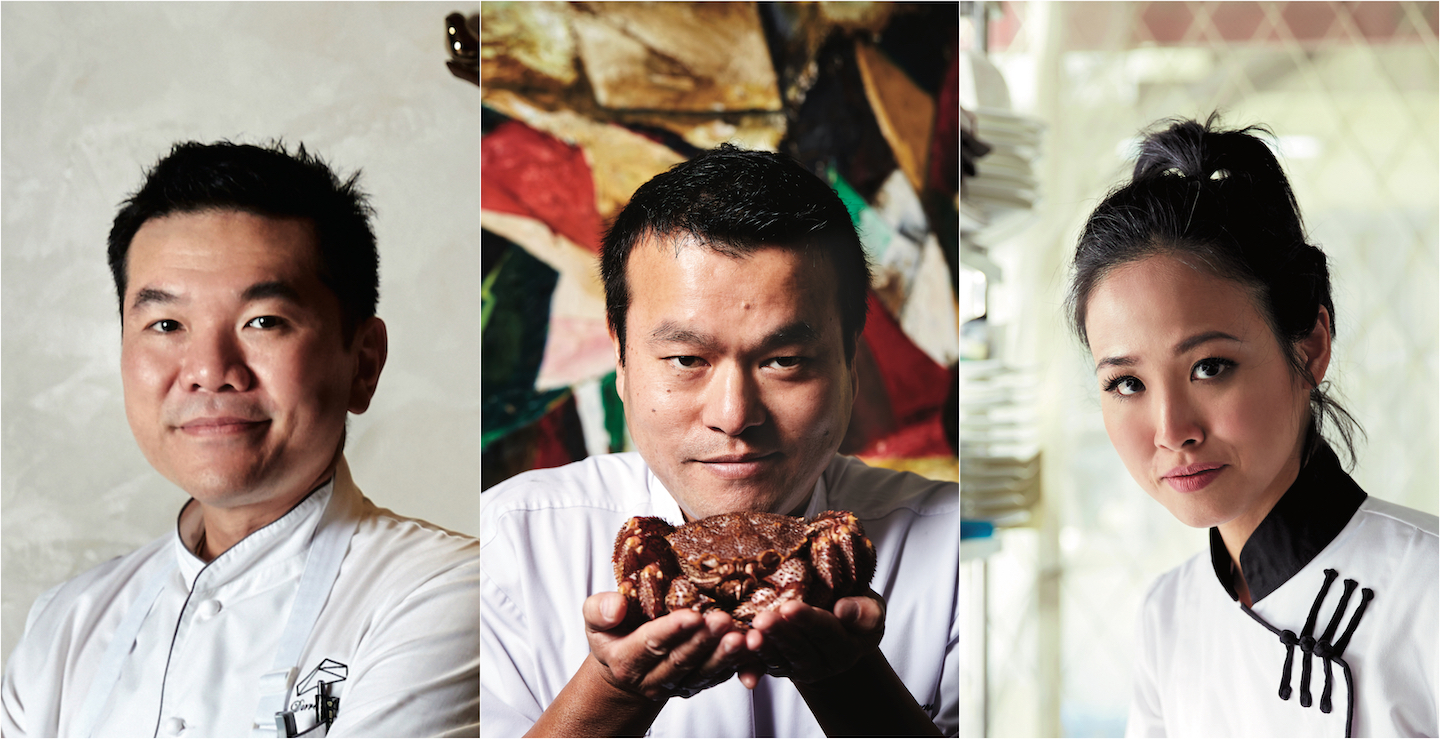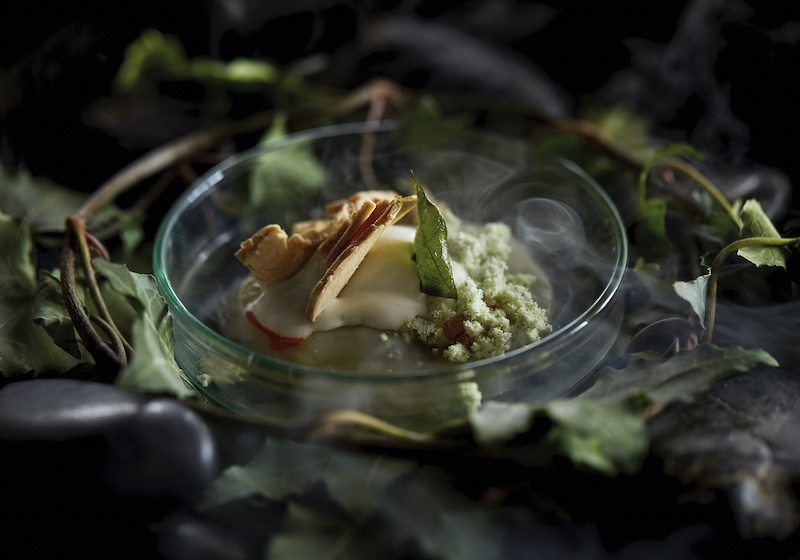
From left: Chef Darren Chin (DC and Bref restaurants); chef Takashi Kimura (Cilantro); and chef Isadora Chai (Bistro à Table).
Akin to a butterfly emerging from its chrysalis, the reaction to enjoying one’s first meal out in the scary pandemic-ravaged world may range from bubbling excitement to fearful trepidation. And while many among us were hardly starved — for choice or in the literal sense — during the Movement Control Order (MCO) owing to food delivery service providers, a torch was certainly carried all throughout for the lingering love of gourmet cuisine.
After all, compared with pizza or banh mi, delicious though they may be, fancy food does not travel well. There is also something to be said for the quasi-religious ritual of going out to eat at someplace really nice — starting from the securing of a table and all the ablutions entailed with getting ready, to witty banter with the sommelier on which wine varietal works best with tricky asperges blanches and the breaking of truffle buttered-bread with your dinner date. In short, a really good dinner is an experience.
The Covid-19 brouhaha has changed all that for the foreseeable future. Besides sending F&B revenues into freefall, chefs and diners alike are grappling with new culinary conundrums such as the size of dinner parties and whether the Asian banquet style of entertaining will ever return.
isadora_5.jpg

“Our cash flow was haemorrhaging during the MCO period but we maintained our staff and didn’t let anyone go,” says Darren Chin, chef and owner of DC and Bref restaurants. “Now with the CMCO (Conditional MCO) in effect, it has given us some relief. There is still fear in people but we are hopeful they will slowly come out to dine again.”
“It has been devastating for business,” says Isadora Chai, founder and chef of Bistro à Table. “Now that we are able to open, social-distancing rules have reduced our capacity to 35%, making space a premium and every reservation count. Last-minute cancellations, or worse, no-shows, hurt even more now. Perhaps taking deposits to secure bookings, like many establishments do abroad, may be the way forward for many restaurants.”
Choosing to face the headwinds straight on is gourmet stalwart Cilantro, which has taken the proactive route by offering an unbeatably attractive midweek dinner menu. “I’ve always approached Cilantro’s marketing from a customer perspective,” says Tan Boon Lee, deputy group CEO of IGB Bhd, which owns the fine-dining establishment. “So, I asked myself what it would take to attract me out of my comfort zone and go out to dine.”
Assured of the Malaysian proclivity for value-for-money propositions, Tan decided to adapt the restaurant’s hugely popular Friday prix fixe lunch and offer an augmented version of it for Wednesday dinner. “It boils down to value proposition. The formula is well tested and worked for us before. So, Wednesday dinner is now priced at RM300 nett per person with five courses and free corkage. A bill that is easy to divvy up among friends is ensured and, for the drinkers, what better way to free up storage space from all the wines in the cellar that are slowly turning to vinegar?”
dc.jpg

Value-added menus are obviously the way forward for all establishments. Chin shares that he has reduced entry-level prices by 25% without compromising on quality ingredients and is offering smaller degustations, which give the diner all the pleasures of dining out but in a shorter time frame.
Chai has also bitten the bullet, coming up with a specially priced RM50+ two-course menu. “The primary reason is that we are now in our 10th year and I wanted to celebrate with our community that has been so loyal and supportive. The first wave of customers who are slowly returning to dine are also, by and large, our loyal regulars. So, it’s my way of thanking everyone for coming back and trusting us with the responsibility for their dining pleasure and safety.”
Just as living with Covid-19 is our new normal until a cure is found, chefs and restaurateurs alike are hopeful that the famous Malaysian love of makan — supported by stringent new health and safety standard operating procedures — is enough to lure the diner out. After all, as we said before, a really good meal is an experience. And, as we all also know, the best experiences in life need to be lived in order to be fully appreciated.
This article first appeared on June 1, 2020 in The Edge Malaysia.


